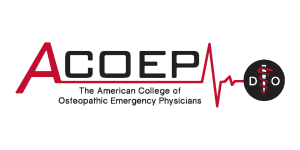The Disaster Within
By William L. Bograkos, MA, DO, FACOEP, FACOFP
Adapted from a piece originally published in the Journal of Addiction Medicine
War is a man-made disaster. Many people who have been deployed on military or humanitarian missions experience disaster within – trauma that doesn’t bleed. But you don’t have to be a soldier or peacekeeper to experience disaster within. All those working in healthcare during our current pandemic are susceptible to this form of trauma.
The word “disaster” derives from Greek and Latin, meaning, “stars out of alignment.” An initial disaster stressor, an associated trigger and an individual’s coping skill can certainly knock one’s personal celestial sphere out of orbit. Acute or chronic disaster is often followed by substance abuse. The abuse can be impossible to ignore with explosive binging, or present as a steadily slow-burning fire, which can be just as destructive. Trauma associated with substance abuse could stem from violence, but in the current pandemic climate, it is more often associated with trauma that doesn’t bleed. Disaster within is quickly becoming an omnipresent problem.
A ship may appear to be burning and sinking during the odyssey of life, but, with survival skills and a bit of hope, it can reach safety through recovery. The journey to safety, rehabilitation, reconstruction and development towards a stronger self endures in the continuum of disaster dynamics. Ships and homes need to be attended to, developed and strengthened. The wind and the sea are a constant threat to those who engage in life. Travelers must be prepared for these challenges and understand how to navigate dangerous waters. Triggers may threaten to bring one onto the rocks of relapse.
Access to care is access to skillful shipbuilders. In other words, access to care is access to education and recovery. Collaboration between medical specialties such as emergency medicine and addiction medicine is essential. As is building bridges between professionals such as social workers. Dedicated clinicians who have studied the nature of addiction medicine, and have navigated the seas of disaster within, are essential to keeping us all afloat.
All disasters require coalitions of interdisciplinary stakeholders. This holds true for both patient-centric recovery and physician wellness. Disaster plans currently address vulnerable populations, PES and deliberate epidemics. Leaders and mentors must bring stakeholders together to prepare and respond to disasters.
Let us train together in treating the disaster within while easing the burden our communities face.

